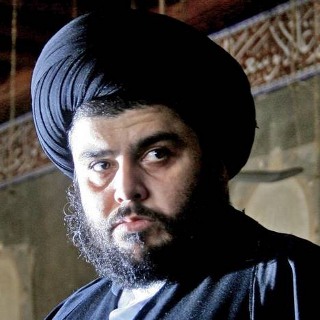The Iraqi election has produced a number of surprises, from the Iraqiya Bloc’s dominance throughout the Sunni majority provinces of the nation to the Kurdistan Alliance’s struggling to draw even a plurality in Sulaymaniyah, the home province of President Jalal Talabani.
 But potentially the biggest change in the nation’s power structure was in the third place Iraqi National Alliance (INA), a bloc formed when the Supreme Islamic Iraqi Council (SIIC) cast off Prime Minister Maliki and courted a collection of Shi’ite minor factions. The SIIC, once a major player in Iraqi politics, stumbled badly in the vote, and the INA now looks to be dominated by the followers of cleric Moqtada al-Sadr.
But potentially the biggest change in the nation’s power structure was in the third place Iraqi National Alliance (INA), a bloc formed when the Supreme Islamic Iraqi Council (SIIC) cast off Prime Minister Maliki and courted a collection of Shi’ite minor factions. The SIIC, once a major player in Iraqi politics, stumbled badly in the vote, and the INA now looks to be dominated by the followers of cleric Moqtada al-Sadr.
Sadr’s followers have amounted to a small but vocal opposition, railing against the US military presence and the Maliki government on a number of issues. But a surprising level of political savvy this time around has netted enormous gains, and the Sadrist Movement is seen as picking up as many as 40 seats in the parliament, which would be the majority of the INA’s seats and would put Sadr in virtually unquestioned control over the entire bloc.
This would be significant itself, but is made doubly so as the top two blocs, Ayad Allawi’s Iraqiya and Maliki’s State of Law, coast to what looks to be a virtual tie, with both needing the INA to form a government independent of the other. This has put Sadr in the position of kingmaker, and both sides courting him with what will likely be growing concessions in the coming weeks and months.
It is unclear what demands Sadr would have, but it is almost a certainty that any government including Sadr would be less than friendly to the ongoing US military presence, and might even try to ensure a pullout as the Obama Administration wavers.
But whether or not Iraq can simply vote its way out of the US occupation remains to be seen. The promised “referrendum” on the Status of Forces Agreement (SOFA) simply never happened, and never will, at least not in any form that will affect the US military presence. President Obama seems more interested in the recommendations of the military than the position of the Iraqi government at any rate, though a Sadr-linked government would surely make things uncomfortable, if nothing else.


